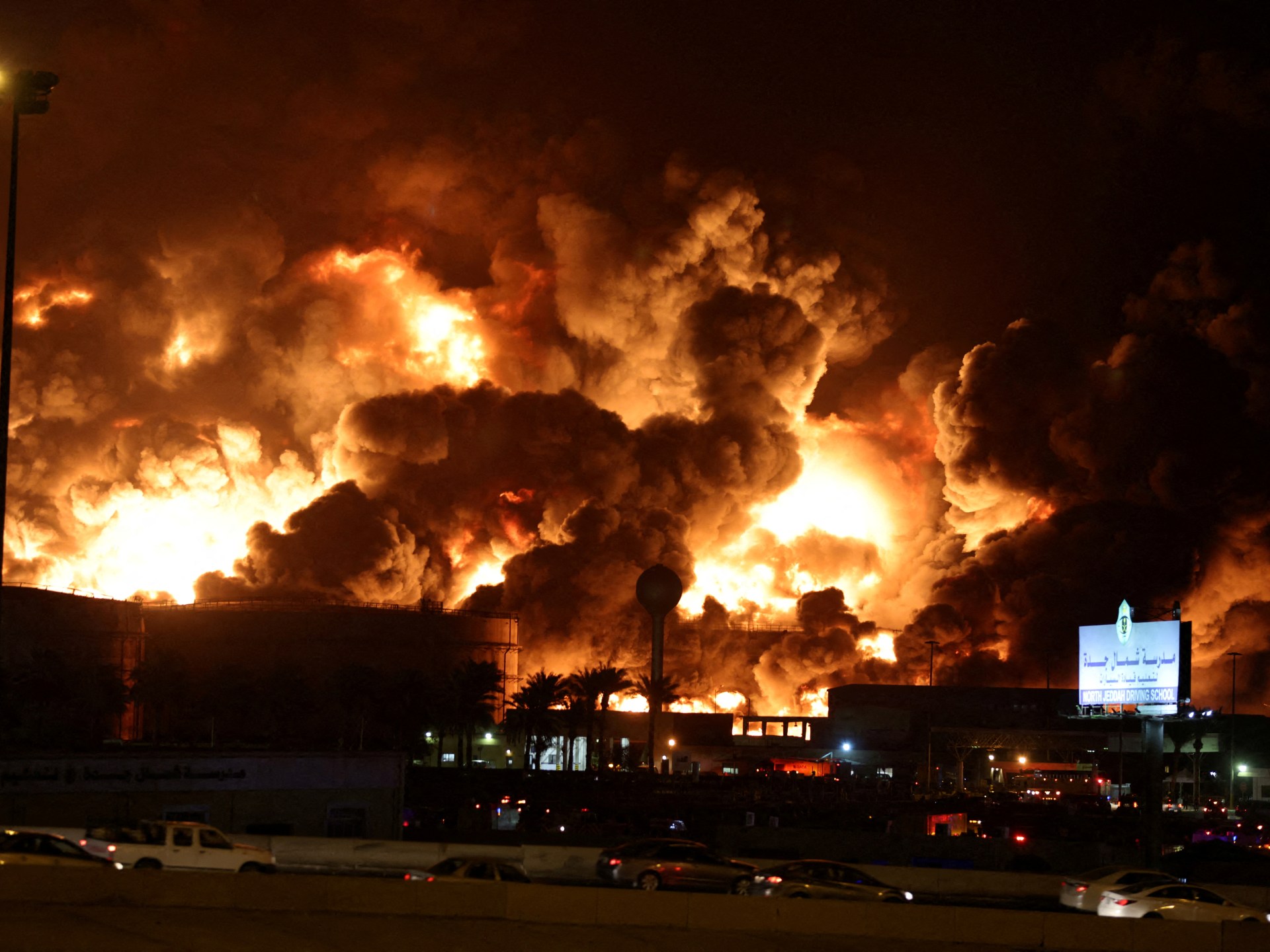First of all those missiles were originally acquired to be used against Saadam but as time passed and as Iran got weaker those missiles assumed more importance because they compensated for Iran's weaknesses in various areas .
That's irrelevant. For all I care, they could have been made to make nice fireworks. But they are now used to reign terror from afar, threaten to hit Israeli and gulf cities, and as an engineering backbone for WMD delivery later on.
Secondly what "expansion" are you on about? If you're referring to Iranian moves to safeguard and maintain ties with its Shia co religionists in various Arab countries [In which Iran has had ties and influence with for centuries]; propping up Assad against IS [Assad's fall would have strengthened and emboldened the Gulf Arabs and would have impacted Iraq which shares a border with Iran] and creating strategic depth in other places; that hardly qualifies for "expansion" per see. Has Iran actually physically occupied other countries or territories? Other players comes to mind.
Expansion means Iran is expanding. There's not much more to it. Iran has forces in Yemen and controls most of the territory. That's expansion. Iran has a de facto occupation of Lebanon. That's expansion. Iran has the Iraqi PMU in its pocket. That's expansion. Iran has the PIJ and Hamas in Gaza and West Bank. That's expansion. It has militias all over Syria. That's expansion.
These are all areas where, through whatever means, it can conduct ground ops and assert high level decisions.
How it achieves that control is relevant to solving the issue. But it's irrelevant in the step before that - seeing the issue, and you're not seeing it.
That's the shortsighted and simplistic view of things. A lot of what Iran does now is driven by the centuries old Sunni/Shia divide; the current Cold War fought between Iran and the Gulf Arabs [which to Israel's dismay may ease] and the 8 year old war waged by Saddam which was supported by the West and the Gulf Arabs and which countries on the periphery - such as Israel - also benefited from in a number of ways.
That's its problem. If its religious views say it must attack its neighbors and occupy them all, then those whom it attacks are not obligated to just sit there and take it with understanding. They will fight back, and any backlash Iran faces is eventually its own doing.
Is that a personal view or an actual verifiable one? Unless I'm mistaken the IAEA stated that despite some concerns Iran was largely keeping up to its end of the bargain. Or are you going to say the IAEA was/is mistaken, weak and flawed? Or perhaps even biased?
The IAEA, I wouldn't say it's biased. But it does have its own investigative tools and channels to discuss matters with other entities, and it usually arrives at the same conclusions as western intelligence, just later because it has to verify claims on its own.
Hence why we heard the IAEA still claiming Iran was still in line with the deal when it was scrapped, and months later they confirmed Iran was violating it when the JCPOA was intact, and from day 1.
The US pulled out of the deal in response to intel about 2 undisclosed sites, in one of which Iran held both nuclear material and an archive detailing information Iran was obligated to present to the IAEA according to the JCPOA.

www.i24news.tv
As for "untrustworthy" what about the U.S. which decided to abandon the JCOA which was agreed upon after extensive lengthy and tedious negotiations involving various parties. No doubt you'll see fit to provide an Israeli perspective as to why the JCOA was flawed to begin with and the U.S. was absolutely right to.abandon it.
As I said, the US never decided to withdraw from the deal independently. It was a bilateral decision - Iran violated the deal blatantly, and the US reinstated sanctions.
For the US and other parties to uphold the JCPOA, so must Iran. If Iran violates the deal, it nullifies it.
Right; so if countries adopt this policy [something Israel would like] and if after a number of years it delays and disrupts Iran's nuclear programme but nothing more; what next? "More" actions you say? How much "more" and for long? Indefinitely because those are the only options?
The idea is to keep the actions going until Iran exhausts itself in some way, and that's why the solution must be holistic.
If Iran invests 100X amount of money in building some infrastructure, and 100Y amount of time on it, but it takes 1X and 1Y to destroy it, and Iran's economical might does not offset that, then that's a net gain in military and economical balance.
If Iran is under sanctions, it will gradually have fewer and fewer resources to replenish and rebuild.
The Israeli campaign in Syria is estimated to cost Israel several billion dollars already, but tens of billions of dollars for Iran.
Do this correctly for enough time and eventually Iran is exhausted in at least some way and becomes more open to dialogue, or becomes unbalanced and the next government is a wildcard that could be much better, or at worst, a physically exhausted antagonist.
You know; there are such things called diplomacy and dialogue rather than merely relying on military options which are a short term but not a long term solution. If you've noticed many lasting peace arrangements are a result of war followed by diplomacy and dialogue. Many countries have learnt the hard way that military solutions don't always enable the desired results.
We'd love to have a pre-1979 Iran, i.e a Persian ally. But that's no longer the case. We don't have peace anymore, and it wasn't our doing.
Iran's leadership sees any lasting peace with Israel as the world's biggest taboo. Worse than any human rights.
So it's not like we can just talk to them like we did with all our neighbors.
I don't see how one can seriously accuse Israel of blindly choosing military options and neglecting diplomacy.
Perhaps if a sweeping strike on Iran's national assets including the nuclear facilities, followed by Russia-like crippling sanctions, were to occur, Iran could actually start negotiating. Otherwise, it's just scoring victories all across the region and so should not feel compelled to stand down and talk.
Yet here you are suggesting that everyone's appeasing Iran; the Gulf Arabs and Americans are wrong, weak and shortsighted [Israel of course knows and understands better] and that ultimately the Iranians don't desire peacee or stability as they are intent on indefinite long term war/expansion/agression.
I'd split the weak from shortsighted, and Gulf Arabs from the US, and put each in only one category, but yes. It's undeniable the US has only scored losses across the region over the past 2 decades. The only exception would be a somewhat west-aligned Iraq.
Is abandoning Israel and Arab allies shortsighted, or is it just carelessness as the US lost interest in the region? Could be either way.
And the gulf Arabs are just plain incompetent.
It is a fact that Iran seeks domination, not peace with its neighbors. I gave the Russia analogy because the Europeans awoke to the fact Russia cannot be relied in any way, and yeah there will be dealings with it, but that's how economy works - investors fear such high risk.
Iran is to the middle east since decades ago, what Russia is to the Europeans today.
It just gets much less ink outside the region.
Is that a fact? Invaded,by whom?
Yes, Iran.
Examples:
Syria, Iraq, Yemen, Palestinian territories, Lebanon.
To you no doubt. Naturally you would say that. To others it's a means of solving mutual issues with a view of easing tensions and moving things forward. It's certainly better than continuing a policy which has led to nowhere.
Then how do you explain that every time we hear of Iran-Arab talks, we hear of attacks on the respective Arab state's strategic assets shortly after?
That's not diplomacy. That's domination.
Why would the Arabs do as you want - to.benefit Israel or because you feels it solves things? They have to live next to Iran
Because of Iran's de facto occupation of Lebanon and parts of Syria, so does Israel.
They don't have to do what we want. But we are carrying the entire region's efforts against Iran, from afar, for the sake of the Arabs as well. If they start pulling their weight, it's first and foremost going to benefit them.




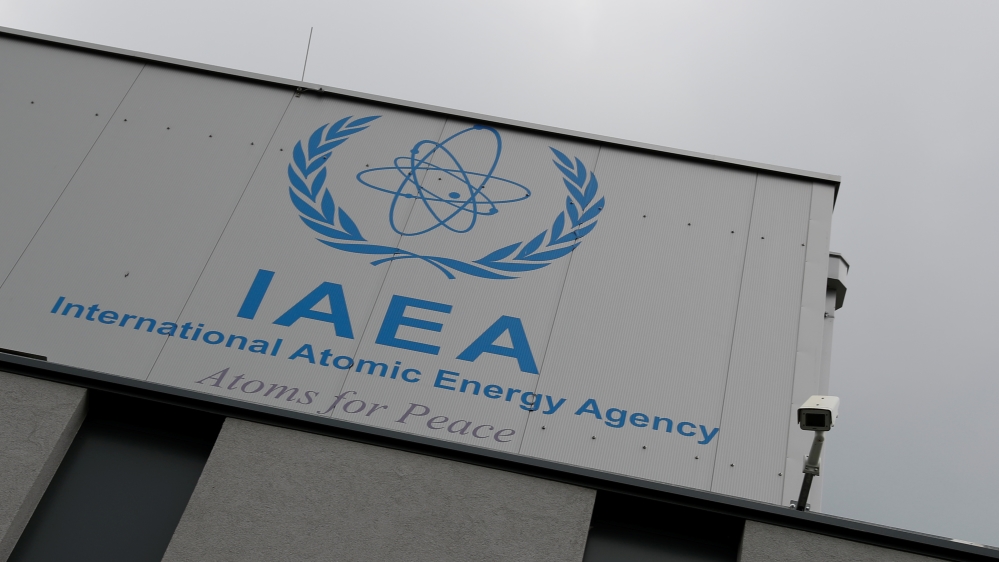
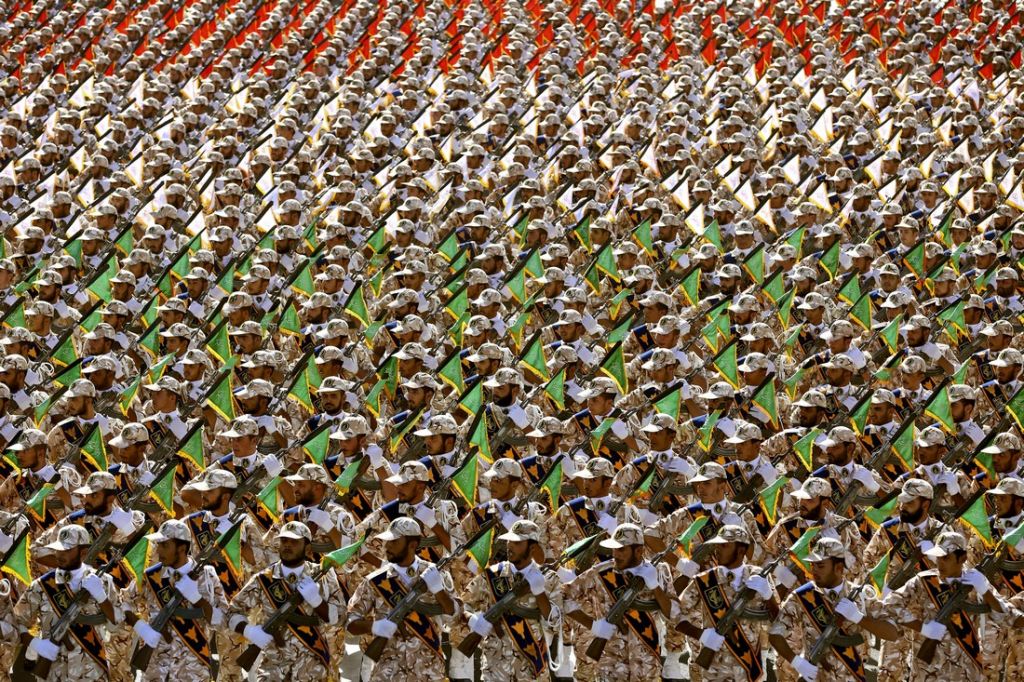

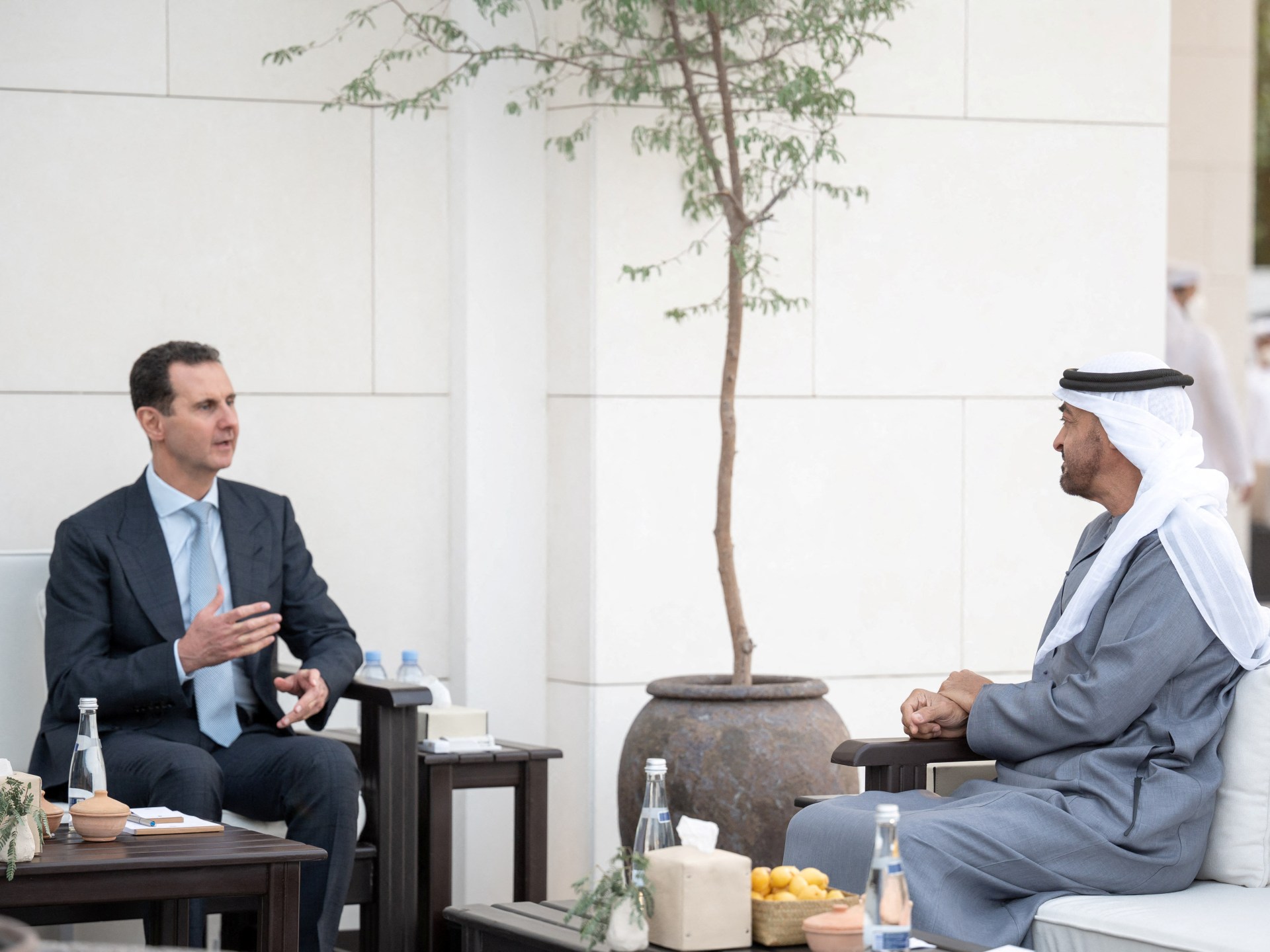
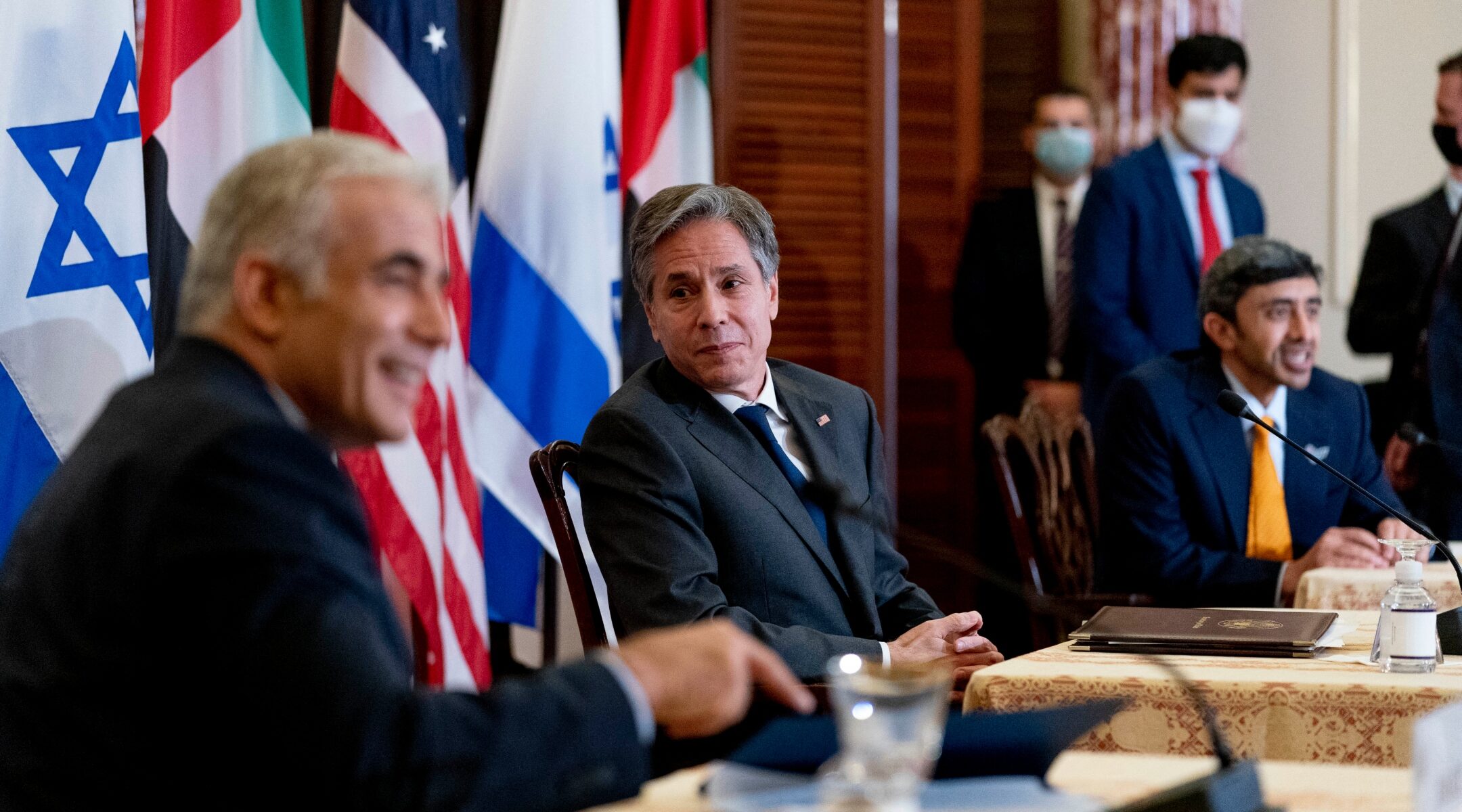
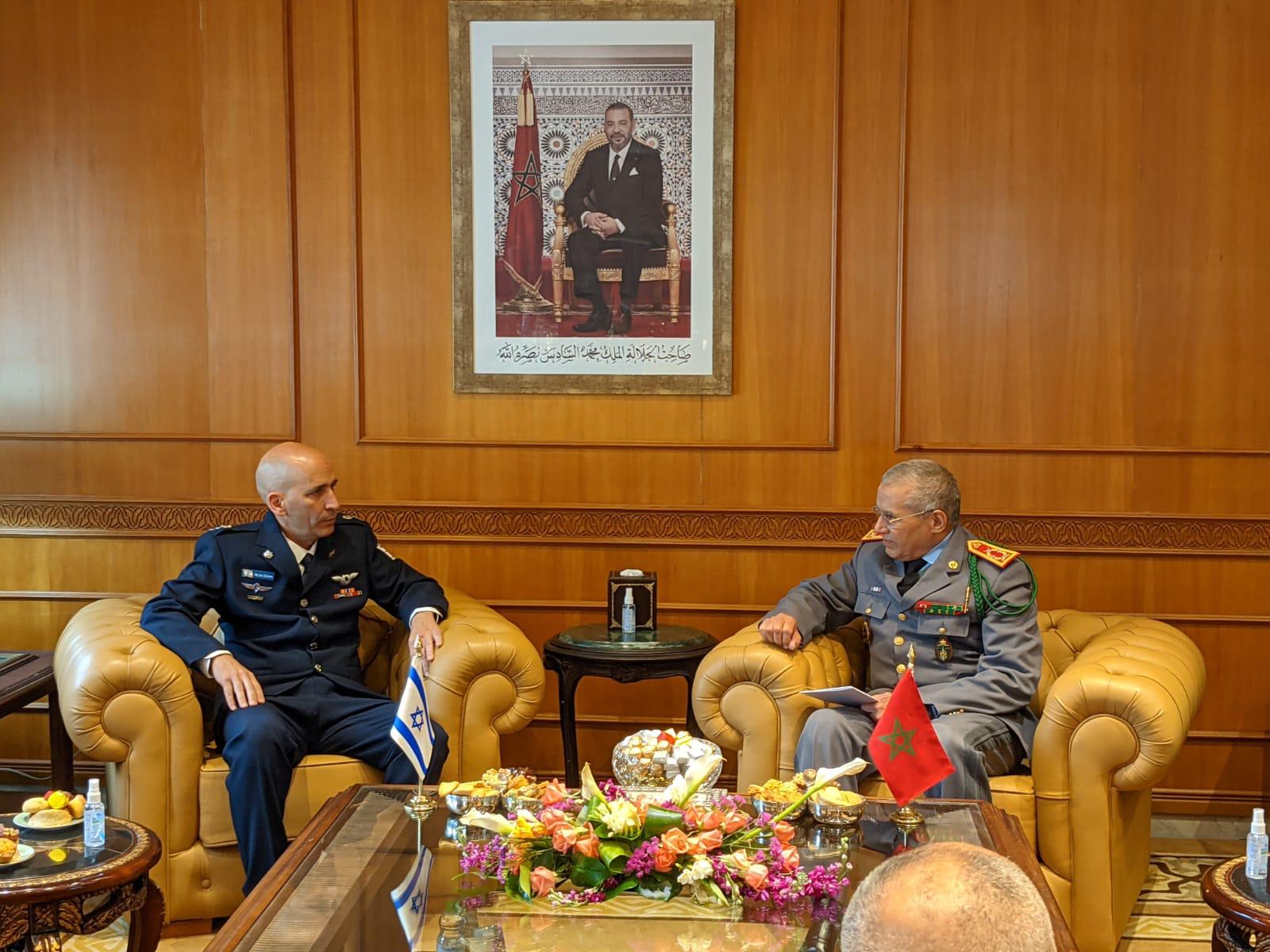
/cloudfront-us-east-2.images.arcpublishing.com/reuters/VHW6FIKRNVIOZGIZQ4DDE6KIMI.jpg)
